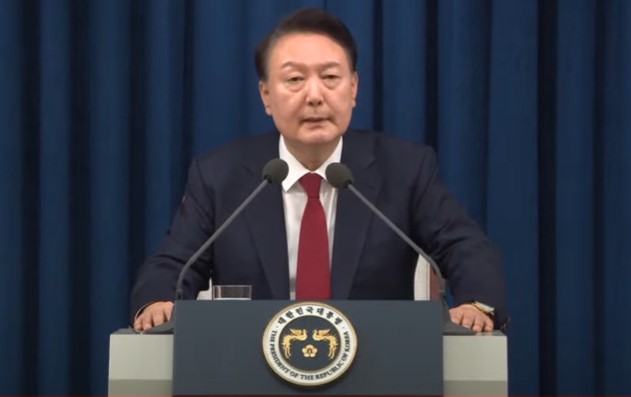SEOUL — The National Assembly has impeached South Korean President Yoon Suk Yeol following a controversial attempt to impose martial law earlier this year, triggering a political crisis in the country. On Saturday, lawmakers voted overwhelmingly, with 204 in favor and 85 against, to impeach the president, citing the unconstitutional nature of his declaration. This motion, which passed with the required two-thirds majority, marks a significant moment in South Korea’s democracy and its relationship with the United States, of which Yoon has been a crucial ally.
The impeachment vote, which took place in a tense session of the unicameral National Assembly, was supported by an unlikely alliance of opposition parties and several members of the ruling People Power Party (PPP). Though the opposition, which holds 192 seats in the 300-member parliament, had been struggling to garner the necessary support, the PPP’s internal division—following a boycott of an earlier impeachment attempt—enabled the motion to pass.
Yoon’s declaration of martial law, which he issued after a series of controversial political protests and public unrest, was described by critics as a breach of the Constitution. The motion pointed out that there was no immediate national emergency to justify such a measure, and the president failed to follow procedural rules, including notifying the National Assembly in advance of his decision. Opponents accused him of overreach and of undermining the checks and balances inherent in South Korea’s democratic system.
In a statement following the vote, National Assembly Speaker Woo Won-sik said, “Dear people, now go and enjoy the year-end parties,” as the vote to impeach Yoon was seen by many as a necessary move to restore democratic order.
Despite the vote, President Yoon has refused to step down, challenging the decision and indicating his intentions to continue governing. His administration has maintained that his actions were justified and that the impeachment was politically motivated. Yoon has denied any wrongdoing and insists that he acted within his legal powers.
The next step in the process to remove President Yoon from office involves a constitutional review by South Korea’s Constitutional Court. This court will have six months to evaluate the legitimacy of the impeachment. If the court upholds the impeachment, Yoon will be removed from office. If the court overturns the decision, he will resume his duties as president.
However, the political situation remains volatile. Yoon’s refusal to concede power could lead to further public unrest, potentially deepening the country’s political polarization. The opposition parties are preparing for mass protests, calling for his resignation in light of the martial law debacle. On the other hand, Yoon’s supporters, primarily from the PPP, have vowed to defend him and challenge the legitimacy of the impeachment process.
In the meantime, South Korea faces the uncertain task of navigating this political turmoil. While the legislative branch has acted decisively, the executive and judicial branches now face critical decisions that will determine the future stability of the country. The political impasse is further complicated by the approaching New Year, which may serve as a backdrop for larger protests and heightened national division.
As the process unfolds, South Koreans are left wondering whether their country’s democratic institutions will withstand this unprecedented challenge to executive power. With both sides entrenched, the resolution of this crisis could reshape South Korea’s political landscape for years to come. (zai)

